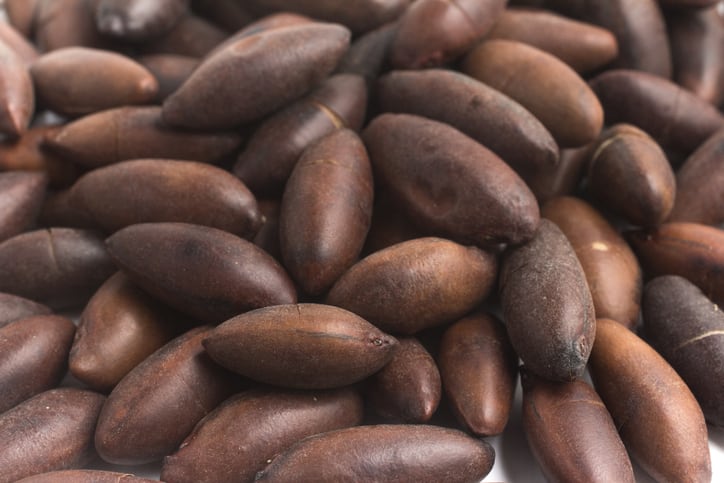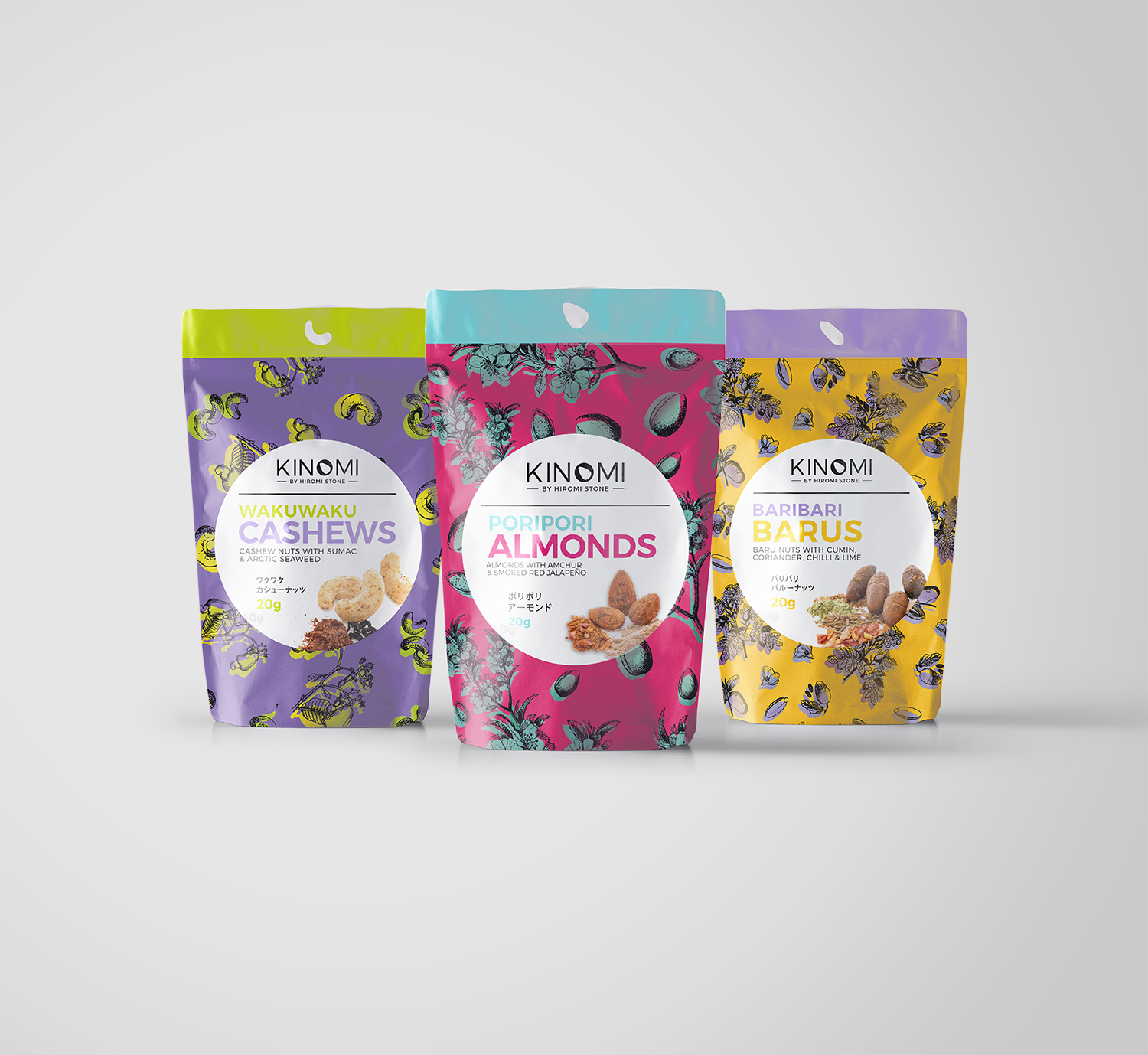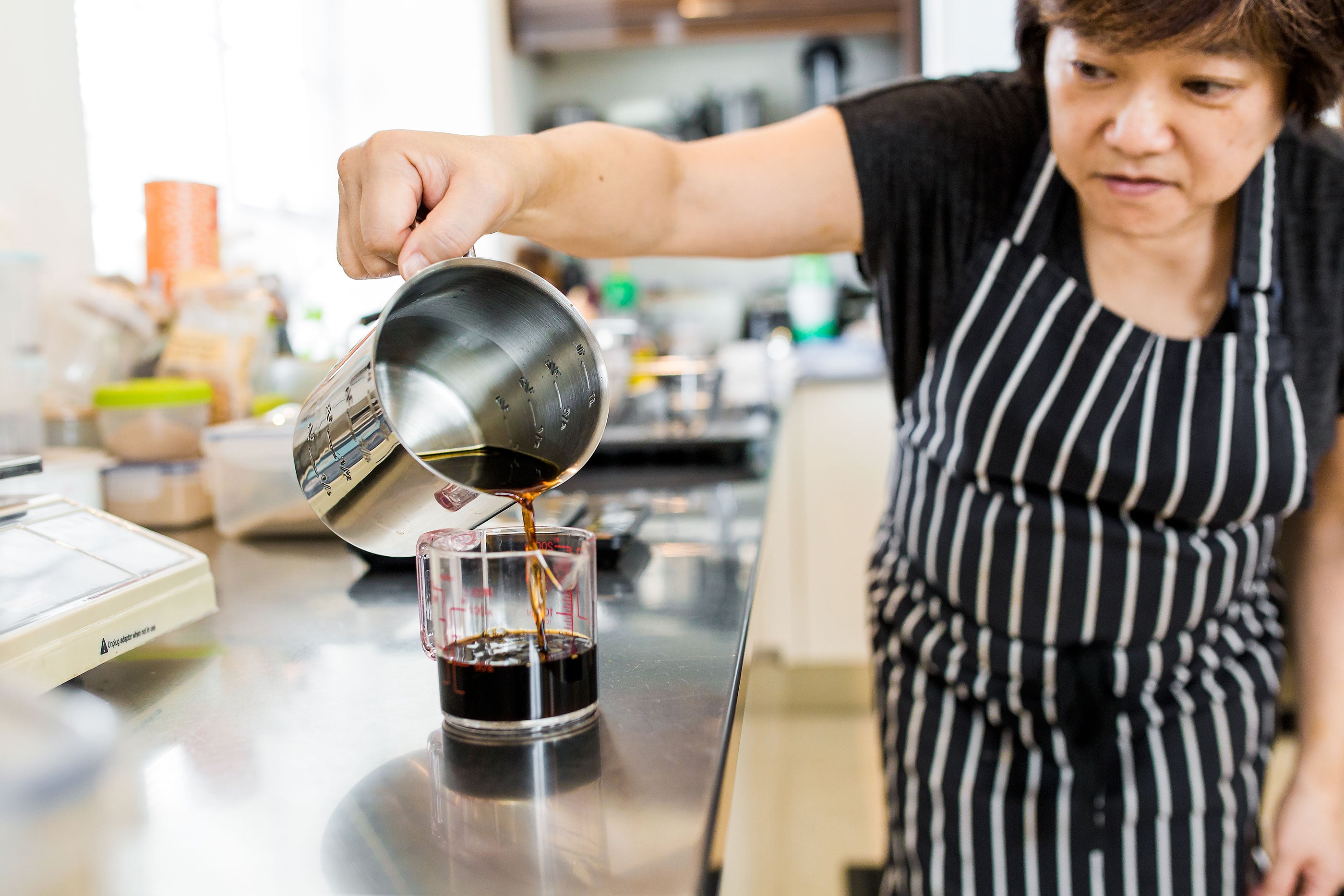A wild nut that grows in pods in Brazil's Cerrado savanna, baru nuts are little known among Western consumers despite the growing popularity of nuts for a host of free-from products, from plant-based milk alternatives to nut butters.
Roasted until crunchy, they have an acorn-like appearance but can be eaten whole, and according to Hiromi Stone, Japanese chef-turned-entrepreneur and founder of UK-based start-up Kinomi Nuts, the flavour is “somewhere between a peanut and a soy nut”.

"They [...] are collected and processed by local cooperatives once they fall from the tree [and] baru trees play an important role in keeping the water stable in the Cerrado. The area is being decimated faster than the Amazon with ranching and soy bean planting destroying the natural habitat.
“Barus are just starting to become known as a cash crop in the region and we hope that it will go some way towards halting the destruction of the region. It is a super nutritious nut, high in protein, low in fat and full of antioxidants.”
East meets west
Kinomi has three products, WakuWaku cashews, PoriPori almonds and BariBari barus that are gluten- and additive-free.
Inspiration for the flavours came from Stone’s Japanese origins.
“The spices started as a way to bridge my two homes – Japan where I am from and England where I live now," Stone told us. "I realised that in-between lay the spice route. So I started experimenting with different spices to layer on top of the base Japanese flavour. Soy, sake, kombu are essential flavours in Japanese cooking so everyone is very familiar with them [but] the spices are completely my idea.”
When teaching Japanese home cooking in her apartment, Stone would prepare mixed nuts for her students to nibble on.

“The flavours would not interfere with the lesson since they were very much a part of what I was demonstrating. I started getting requests to buy them and over time, they turned into a product."
Amchur, sumac, sake and kombu
After years of overseas travel and immigration, UK consumers are hungry for new, exotic flavours beyond the established Chinese and Indian cuisines - and they want to try these flavours in the home, not just in restaurants, according to vice president of research at Mintel David Turner.
In a three month period, more than one fifth of British adults surveyed by Mintel said they had eaten at least seven different types of global cuisines at home.
Keen to appeal to these foodies, Stone adds exotic, lesser-known ingredients to (literally) spice up the nuts.
The PoriPori almonds, for instance, contain amchur, or Indian powdered green mango. Amchur is traditionally used to add a fruity tanginess to foods as well as acting as a tenderiser for meat and fish due to its high acidity content: one teaspoon of amchur is equivalent to three tablespoons of lemon juice.
In a nod to where the baru nuts are sourced, the BariBari nuts blends Asian flavours with Brazilian cumin, coriander, chilli and lime while Kinomi's best-selling product, Waku Waku cashews, mixes Norwegian seaweed and tangy Lebanese sumac. This mimics the flavour of yukari, a Japanese table-top seasoning, the company said.

“I season lightly so that the hero flavour is always the nut. It is a grown-up, sophisticated snack, meant to be enjoyed slowly.”
Stone also makes very specific food-pairing suggestions: the Poripori almonds pair well with a single malt whiskey, for instance.
“The business has been going for six years now, but it's been about 18 months since I rebranded and came out with this new line. I feel like I've finally got things lined up where I want and hope to grow the business in 2018."
While the phrase ‘home-cooked’ is a mere marketing term for many manufacturers, Stone’s products are quite literally home-cooked. She creates the spice blends and flavours the nuts in her own kitchen, producing around 1000 units each week.
Free-from for foodies
Although traditional soy sauce is brewed with wheat, Stone has opted to use a soy-only sauce meaning the products can be labelled gluten-free, suitable for those with a gluten intolerance. (As the products are prepared in her kitchen, cross contamination may be an issue and so they are not labelled 'suitable for coeliacs').
“My products appeal to foodies who are also interested in where their food comes from, who are careful about additives and read labels,” she said. “They are above all, motivated by flavour.”
Stone says she has developed lots of new flavours that are ready to go but wants to focus on “getting the brand out there a bit more” before expanding the line.
Sold on various online platforms as well as the Kinomi site and independent brick-and-mortar outlets in the UK, retailing at £10 (€11.25) for three packs. Stone is keen to develop export markets and has plans to ship overseas later this year.
